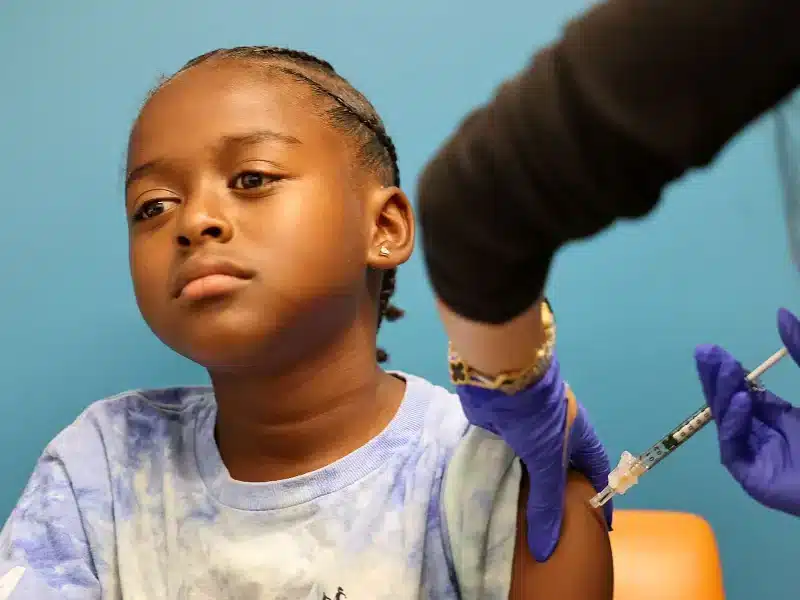Just Like Family
Hold
At a time when hope has become a national buzzword, Kevin Gadker, of Amelia, who has come to be known as “The Heckler from Hell,” would seem like an unlikely source. His 70’s style hockey mask is usually perched as close to the opposing goalie at Cincinnati Cyclones hockey games as the plexiglass and thin wood barrier that surrounds the rink will allow. His in-game character conjures the ghoulish cereal killer mystique that the mask alludes to; the dark eye holes stare emotionless toward the game, as he pounds on the swaying window with black hockey gloves whenever opposing skaters are within earshot. His wiry frame is top-loaded with lacrosse shoulder pads that help fill out the Cyclones custom-made “sweater” (the hockey name for a jersey), with his nickname and the number “666” stitched on the back.
Gadker, a recent casualty of airline cutbacks, represents something much bigger than an in-stand attraction, however. He is evidence that hope can be found in the strangest places. For some Cincinnatians, it is on a rink.
The partnership between the Cincinnati Cyclones and their fans offers a sort of promise that many who hate professional sports — due to scandals that have recently boiled over in the major league ranks — can appreciate. That promise is a real connection between the fans and the game, a concept that seems to have been sucked out, as more money has been pored in. Even for the sports novice, there is a striking difference between relationships between these fans and the team, and those the world has become accustomed to. Atypical to the athlete-fan model, the players and fans are like family. To them, Gadker and the team’s goalie are equals, not a dependent.
On several Monday nights during the hockey season – which stretches from October until April — between 50 and 70 fans cozy up to a stage a Newport bar to see the weekly all-hockey radio show live. They come to talk about the team that they love; to have a drink with the players that they pick up from the airport after being called on from another league; the men they buy Christmas gifts for, as many are far away from home; and boys for whom fans help furnish apartments with end tables and old TVs. The attendees have families of their own, often with children. They are all there. The bartender assumes that the customers who loyally attend are related to the players: “sports parents,” he calls them. It only seems that way.
There is sameness about the stories the fans tell — drawn to a minor league hockey team in a town that idolizes Pete Rose and pro-football almost exclusively. Their tales seem to affirm the sentiment printed on tee shirt one of the fans references. All guts; no glory, it reads.
Quinn Marcotte, a Walgreens photo-tech in his 20s, says that the shirt captures the appeal.
“They play for $525 a week just for the dream of making it,” he says about hockey players at this level.
Separately, “The Heckler” expresses nearly identical thoughts. “It is still a dream to these guys,” he says. The National Hockey League is more physical and slightly faster, but “It’s (just) a paycheck” for them.
Susan and David Potts of Colerain Township have been in the Cyclones fan club for 17 years, even the two years they didn’t exist. David took his wife to her first hockey game back in ‘91, they say. His hope then was that he could squeeze in five or ten contests a year.
“It’s the athleticism that did it for me,” says Susan. Nearly two decades later, she claims to have more that 20 team jerseys, or “sweaters,” as they are called in this sport. Now they might miss five to ten home games a year.
Since their inception, in 1990, the team has maintained a certain non-elite appeal.
“The Cyclones were an everyman’s game,” says former Cincinnati Post contributor Bob Queenan, who covered the team at home and sometimes on road trips for much of the 1990s. He explains the games quickly became popular in the early days because of their accessibility. They were inexpensive family entertainment with relatively cheap but good concessions, he says. The games were particularly attractive to frugal parents and their brood, along with college students, what Queenan calls a “beer and a shot crowd.”
But after two years of selling out the 9,000 seat Cincinnati Gardens almost every night, the team bumped up prices and tried to appeal to a new, more posh, audience with more expendable income. But, seat licenses combined with the creation of the private box nudged the fan base further from the ice.
“They didn’t like hockey and they didn’t care,” says Queenan about the new audience that had largely been given tickets through work. A league change and the slow alienation of the fan base resulted in the team going out of business by 2004.
Since their resurrection for the 2006-‘07 season, however, it seems fan enthusiasm has begun to rebuild.
“You’re on a minor league team, but they make you feel a pro,” says Sean Perkins, a defenseman from Michigan, sitting at a round table for the radio show with teammate Scott Reynolds, a forward and Saskatchewan native. During the show, fans informally exchange pleasantries and small talk with them.
“In college, the fans partied with us,” Reynolds says. “But here, they want to get to know us.” Almost all the players are far from home and in their early professional careers. The oldest on the roster is 27, the youngest 21.
The teammates say they were joking that they would consider quitting if we were traded to another team, Reynolds says. “After being in a city like this, it would be hard playing somewhere else.” But be would; after all, it’s his job.














